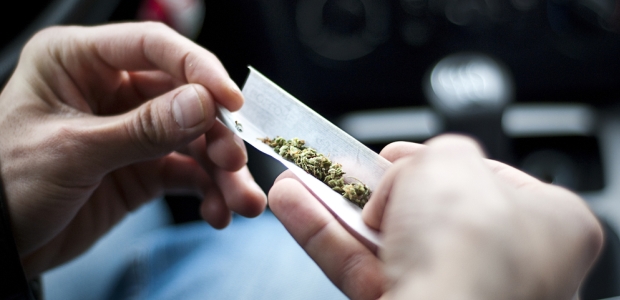
Oklahoma Voters Pass Medical Marijuana Measure
Opponents had warned that the wording of State Question 788 is so broad that its passage would effectively legalize recreational use, as well.
Oklahoma voters passed State Question 788 on June 26, with more than 56 percent of the voters saying they want medical marijuana to be legal in the state. The question got on the state ballot via an initiative petition in 2016, and after a court fight that was won by proponents of the measure, Gov. Mary Fallin set June 26 as the election date.
Fallin issued a statement on election night after unofficial results showed the measure had passed: "I respect the will of the voters in any question placed before them to determine the direction of our state. It is our responsibility as state leaders to look out for the health and safety of Oklahoma citizens. As I mentioned in previous public comments, I believe, as well as many Oklahomans, this new law is written so loosely that it opens the door for basically recreational marijuana. I will be discussing with legislative leaders and state agencies our options going forward on how best to proceed with adding a medical and proper regulatory framework to make sure marijuana use is truly for valid medical illnesses."
She had said that, if SQ 788 passed, a special session of state legislators will be necessary because the measure requires implementation so quickly. It says a regulatory office must be established under the Oklahoma State Department of Health to receive applications for medical license recipients, dispensaries, growers, and packagers within 60 days of the passage of the initiative, and also that the department must, within 30 days of its passage, post on its website an application for a medical marijuana dispensary license.
The Oklahoma Oil & Gas Association had announced June 22 that its board of directors voted to oppose the measure. "Safety is the most important thing to oil and natural gas companies. Because State Question 788 was so poorly written, energy companies would lose the ability to ensure everyone working on a pipeline or rig is clean and sober," OKOGA President Chad Warmington said, according to an online KFOR-TV report. "This measure has many problems, but the biggest is that it makes it harder to ensure every worker goes home safely every day. We urge Oklahomans to vote no on SQ 788."
The measure says that someone who possesses a state-issued medical marijuana license would be permitted to possess up to 3 ounces of marijuana on their person and 8 ounces of marijuana in their residence. A 7 percent tax would be levied on marijuana sales, with revenue being allocated to administrative costs, education, and drug and alcohol rehabilitation. Licenses would be required to operate dispensaries, commercial growing operations, and processing operations. Municipalities would be prohibited from restricting zoning laws to prevent marijuana dispensaries.
Applicants for licenses must be age 25 or older and must show residency in the state of Oklahoma. The measure says anyone with a felony conviction within the past five years, and applicants with only non-violent felony convictions in the past two years, do not qualify for a medical marijuana license.
Possession of up to 1.5 ounces of marijuana by persons who can state a medical condition, but not in possession of a state-issued medical marijuana license, would be a misdemeanor offense with a fine not to exceed $400.